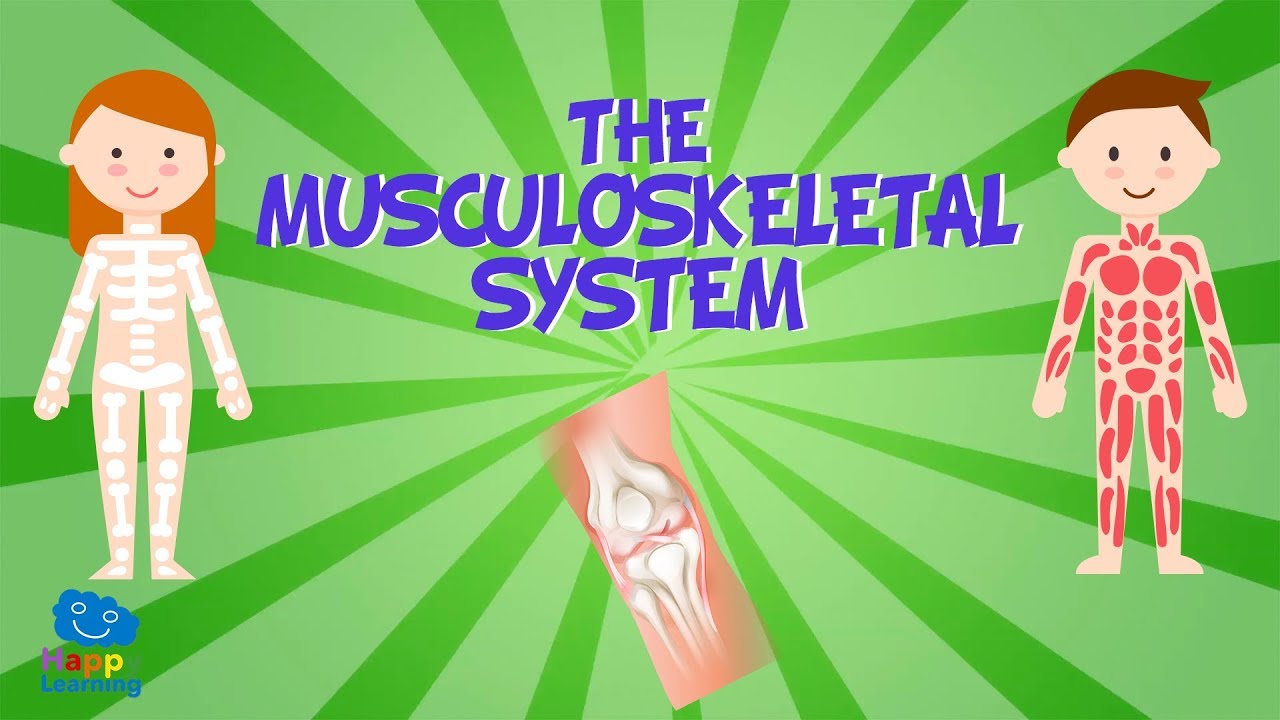Unit 5. Human development
The TEST will be Monday, 7th February 2022
THE NERVOUS SYSTEM
The nervous system transmits, interprets and responds to nerve impulses. It is divided in:
- The central nervous system: is made up of:
- The encephalon: that is divided in three parts:
- The brain: makes decisions and generated orders.
- The cerebellum: controls voluntary movements.
- The brainstem: controls automatic movements and links the encephalon to the spinal cord.
- The spinal cord: that goes from the encephalon to the lower part of the back. It transports the information between the receptors, the encephalon and the effectors. The spinal cord is connected to the nerves of the peripheral nervous system and it is protected by the spinal column.
- The encephalon: that is divided in three parts:
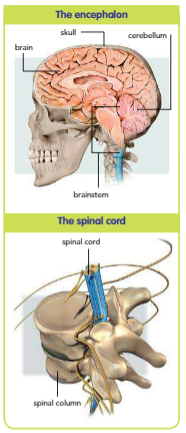
- The peripheral nervous system: is made up of the NERVES which link the receptors to the central nervous system.
- There are two types of nerves:
- The sensory nerves: carry signals from the receptors to the nervous system.
- The motor nerves: carry signals from the central nervous system to the effectors.
- There are two types of nerves:
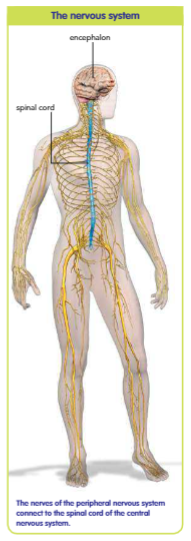
THE SKELETON
The skeleton is a structure formed by bones and joints. Joints are the locations at which two or more bones connect to each other. The skeleton:
- Provides our body with a structural frame
- Protects our organs
- Serves as an attachments for muscles.
BONES
Bones are pieces of hard tissue that make up the skeleton.
HEAD: SKUL, MANDIBLE
TRUNK: SPINE, CLAVICLE, STERNUM, RIBS, SCAPULA ,PELVIS, COCCYX
ARMS: HUMERUS, RADIUS, ULNA
HANDS:CARPALS, METACARSALS AND PHALANGES
LEGS: FEMUR, PATELLA, TIBIA AND FIBULA
FEET: TARSALS, METATARSALS AND PHALANGES

https://www.liveworksheets.com/worksheets/en/Natural_Science/Bones/Bones_sy750171uj
https://www.liveworksheets.com/worksheets/en/Science/Skeletal_System/Skeletal_system_to31046qi
JOINTS Joints are the locations at which two or more bones connect to each other. There are 3 types of joints:
- SEMI-MOBILE JOINTS: have a limited movement such as ribs and the spine.
- IMMOVABLE JOINTS: hold bones such as the skull
- MOBILE JOINTS: these joints allow movement. Bones are connected to ligaments. Some examples are: elbow, knee..
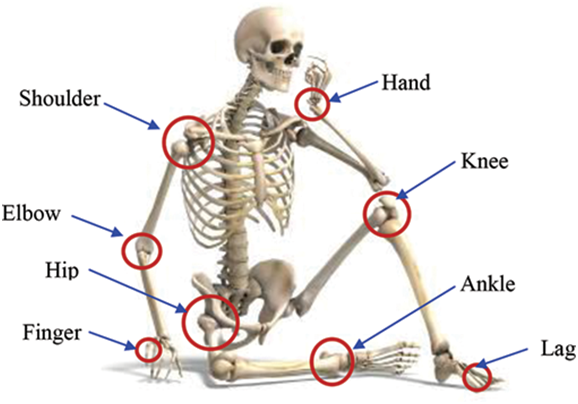
MUSCLES
Muscles are formed by muscle cells, which become shorter when they receive a nerve signal. When the signal stops, they return to the original length. Muscles help us move.
TYPES OF MUSCLES:
- Muscles of the locomotor system that are attached to the skeleton by tendons. They contract when they receive a nerve signal.
- Other muscles such as the heart that are not attached to any bones.
MUSCLES
Head: masseter and temporalis.
Body: sternocleidmastoid, pectorals, deltoids, abdominal muscles, intercostals muscles, obliques, gluteal muscles
Arms: triceps and biceps Legs: quadriceps, adductor and calves.
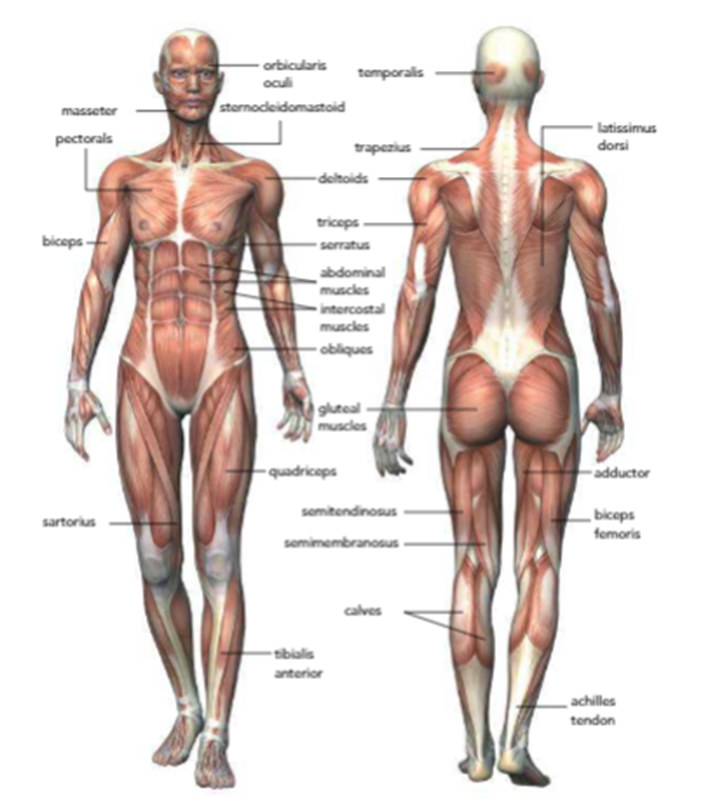
HEALTH
The most common illness of the nervous system are:
- Injuries: caused by blows or wounds
- Psychological disorders: caused by stress.
- Degenerative illnesses: caused by old age and infections.
Our brains need exercise, so when we learn something new more neuron connections are made.
To prevent these illnesses there are certain things we can do:
- Avoid additive substances: alcohol and other drugs.
- Protect your body against accidents.
Some common problems with the musculoskeletal system are:
- Breaking a bone.
- Postural problems cause spinal cord to misalign.
- Sprains to a muscle that are injuries in the ligaments.
- Dislocations: when a bone or joint comes out of place.
- Trains that are injuries in muscles or tendons.
To prevent these problems there are certain things we can do:
- Avoid the same position for a long time.
- Bend your knees and keep your back straight when lifting objects.
- Warm up before doing exercise.


